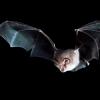A new approach to the genetic engineering of cells promises significant improvements in speed, efficiency, and reduction in cellular toxicity compared to current methods, it is claimed.

The approach could also power the development of advanced cell therapies for cancers and other diseases, according to a study from researchers at the University of Pennsylvania.
The team found that protein fragments used by some viruses to help them get into cells could also be used to get CRISPR-Cas gene-editing molecules into cells and their DNA-containing nuclei with extremely high efficiency and low cellular toxicity.
The scientists expect the new technique to be particularly useful for modifying T cells and other cells from a patient’s own body to make cell therapies.
One such application could be CAR T (chimeric antigen receptor T cell) therapy, which uses specially modified immune cells from a patient to treat cancer. The T cells are removed from the patient and reprogrammed to find and attack cancer cells when reintroduced to the bloodstream.
Image credit | Alamy




